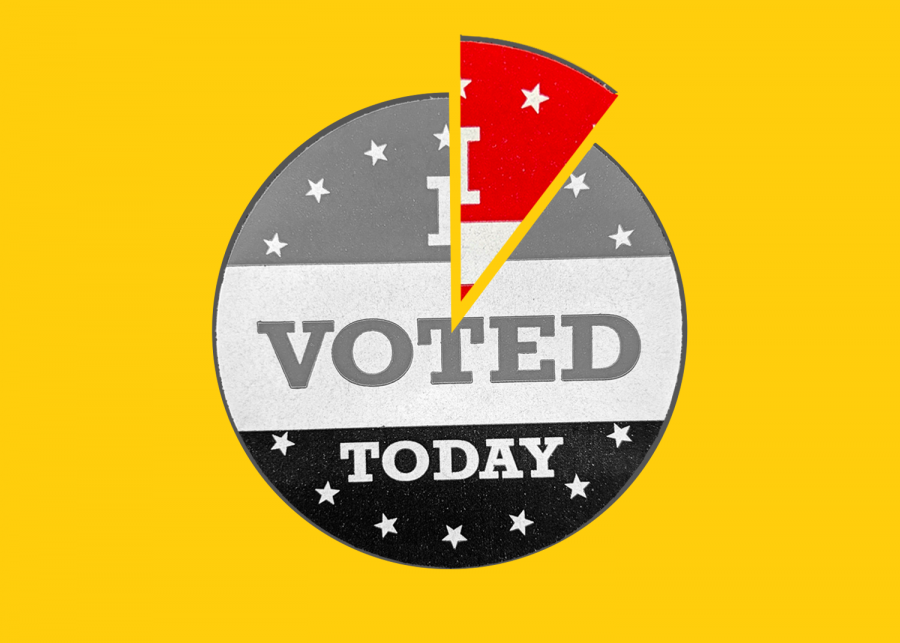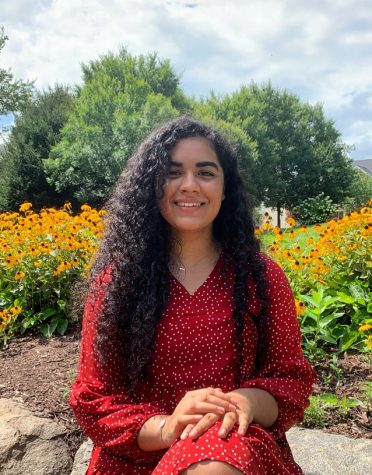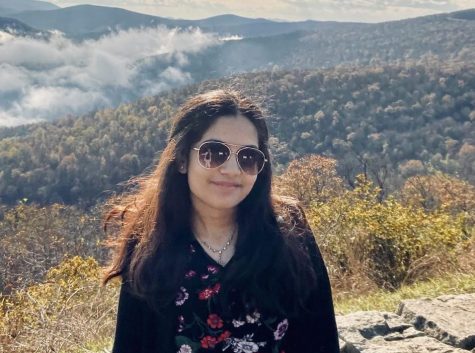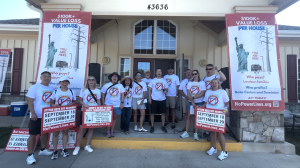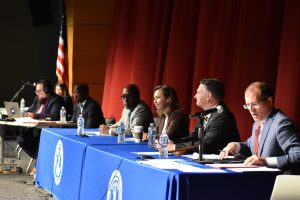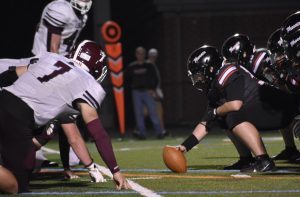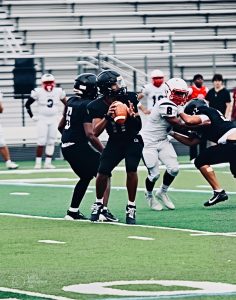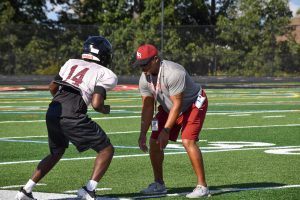Gen Z Voters Take To Polls; Focus On Economy, Racial Inequality, Health Care As Top Concerns
Coming of age during a turbulent election year, the Generation Z voting bloc has a greater potential than ever to affect the outcome of the 2020 presidential election.
Photo courtesy of Steve Rainwater/Wikimedia Commons; Graphic by Shradha Dinesh
An “I voted” sticker is segmented like a pie chart, the outstanding portion representing the growing Generation Z voting population. According to Pew Research Center, one-in-ten voters in the 2020 general election are 18 to 23 years old.
November 1, 2020
This year, young Americans face an onslaught of historic events: a generational public health crisis that has disrupted families, their education, and has resulted in substantial economic consequences; reckonings for racial justice that have swept across communities following the killings of several Black Americans; and numerous natural disasters attributable to an intensifying climate crisis.
The volatility that has characterized this contentious election year has resulted in increased voter participation across the board. According to the U.S. Elections Project, a database tracking voter turnout, early voters have cast 51.6% of the total votes counted in the 2016 general election as of Oct. 28. In Loudoun County, 32.67% of registered voters have voted in person or by mail as of Oct. 22. If total votes surpass 150 million, as the turnout-tracker predicts, the 2020 general election will hold the highest participation rate since 1908.
One significant change in this election is the emergence of a substantial voting bloc. In the 2016 general election, Generation Z accounted for 2% of the votes cast. This year, the young voters, aged 18 to 23, will comprise of one-in-ten eligible voters, according to Pew Research Center.
“I believe that younger people are definitely coming out this year,” Ariel Shumaker, the outreach coordinator for the Loudoun County Office of Elections, said. “I definitely know that there is an increase in participation because, for even my election page program, I had to cut it off at 240 kids who will be volunteering at the different polling places. Since cutting that off a week ago, I’ve received about 80 more applications.”
Shumaker says that teenagers have “shocked” her by asking great questions during their high school visits. “The truth is that every state is different, and I’ve found that kids, especially in Loudoun County, have asked some of the most amazing questions that really get them to understand the system versus going with a rumor of some sort,” she said.
From Oct. 15 to Oct. 27, The Blaze conducted a survey of 93 seniors on election participation and the issues of importance to them. Of the respondents who are eligible to vote in the 2020 general election, 71.4% indicated that they were registered and planning to vote. The other respondents cited a lack of enthusiasm for both major party candidates as their reason for not voting.
Further, students’ responses regarding the issue of most importance were split, with the economy, racial/ethnic inequality, health care, and violent crime taking the top spots. On the second most important issue, students overwhelmingly chose the COVID-19 pandemic.
One voter, senior Chris Moss, said that they are voting for former Vice President Joe Biden. Moss, a registered Democrat, supported Bernie Sanders’ candidacy during the primary elections because of his Medicare-for-all plan. “I’d rather have anyone else as a Democratic candidate, but [Biden] is not Donald Trump, and that is honestly why I am mainly voting for him,” Moss said. “I care about health care, but I also care about how [the president] treats people, because I know that [Biden] is not going to do anything to infringe upon my rights.”
Megan Casas, a junior who is not yet eligible to vote, wants a president “who makes me feel like I matter.” As someone who identifies as left-leaning, Casas said her ideal candidate would be someone who “actually really wants to help this country, and they want free health care … They care about justice.” Casas believes that the younger demographic “just wants to be heard.”
Similarly, junior Alexandra Hardesty, though not yet eligible to vote, hopes to see racial and gender equality, health care for all, the environment, and accessibility to college education be prioritized. Hardesty’s first choice during the primaries was Andrew Yang because she supported him personality-wise and policy-wise; her second choice was Biden. Hardesty holds that many of her views stem from viewing documentaries about crime and racial injustice in the criminal justice system.
“I have minority relatives because I’m biracial — half-white and half-Black — and I do think it’s important to use my voice in that way,” Hardesty said. “Also, seeing the protests over the summer and how everything was treated with tear gas and rubber bullets — it just hit me hard.”
Looking forward, Hardesty wants people from all sides of the political spectrum to be “willing to come together to solve our problems.”
On voting, Shumaker urges people to listen to reputable sources and vote for who they want to vote for. “We vote in representatives to make decisions on our behalf, so, therefore, don’t you want a voice? If you don’t vote, you have no voice; you have excluded yourself from the system that people have worked so so hard for and given their lives to have the opportunity to be a part of,” she said. “The reason that people should vote is because they can.”
The general election will take place on Nov. 3; polls will be open from 6 a.m. to 7 p.m. at all Loudoun County locations.

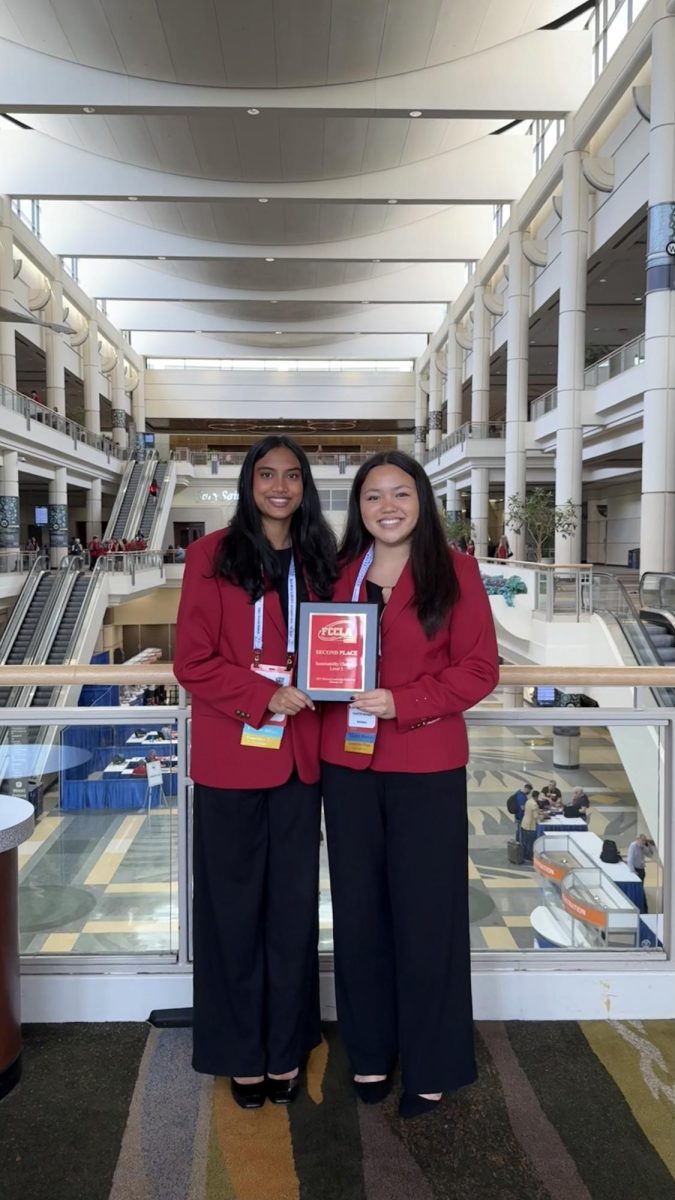













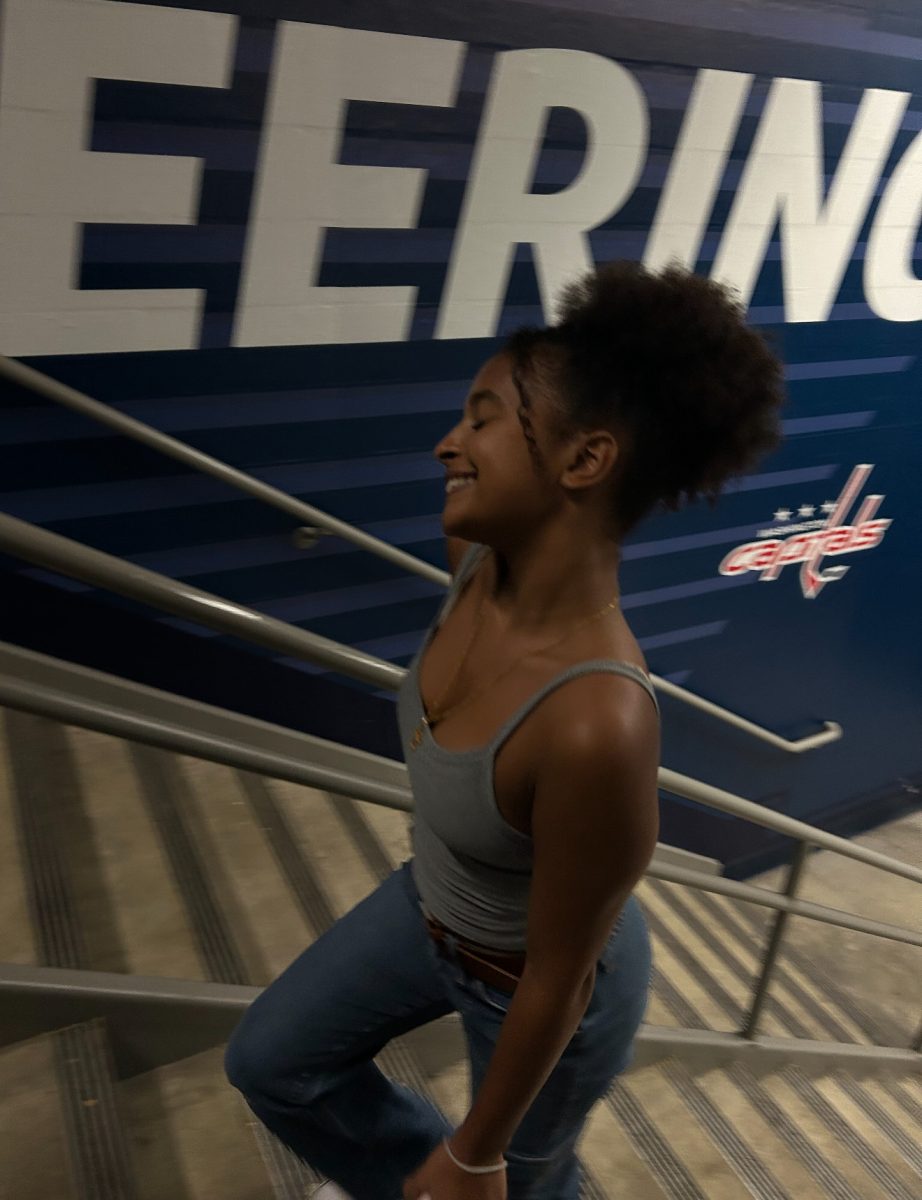
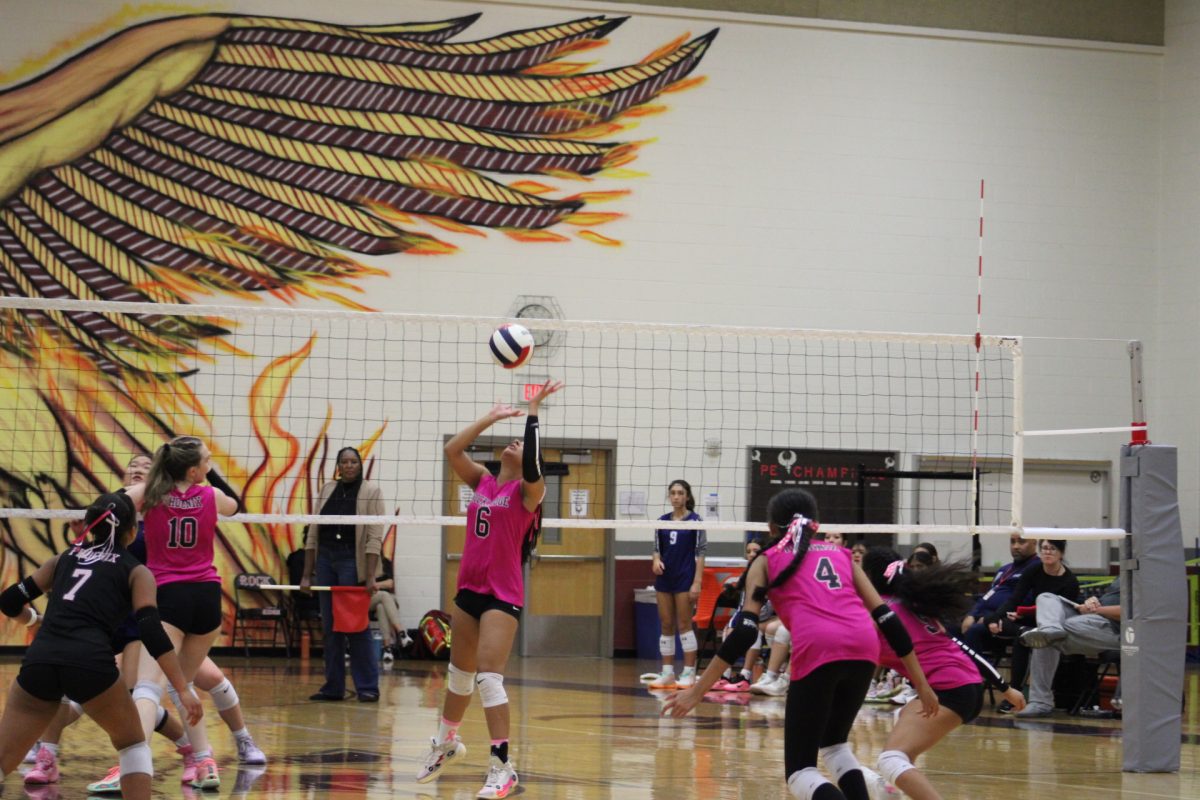



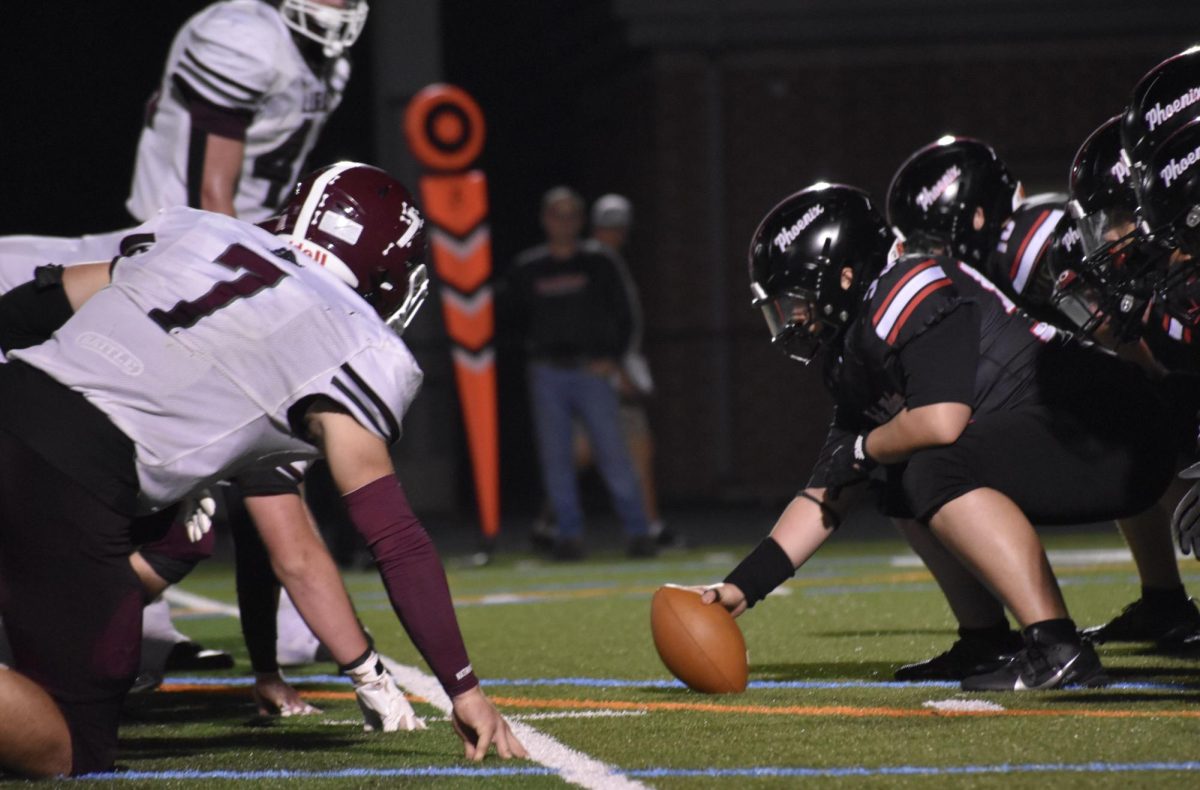





![The Phoenix varsity volleyball team lines up for the national anthem. “We were more communicative [with each other] during this game, and I feel like we kept our energy up, especially after the first set,” senior Jessica Valdov said.](https://theblazerrhs.com/wp-content/uploads/2024/10/DSC_0202-1200x800.jpg)










![Junior Alex Alkhal pitches the ball. “[I] just let it go and keep practicing so we can focus on our goal for the next game to get better as a team,” Alkhal said.](https://theblazerrhs.com/wp-content/uploads/2025/05/DSC_0013-1-1200x929.jpg)


















